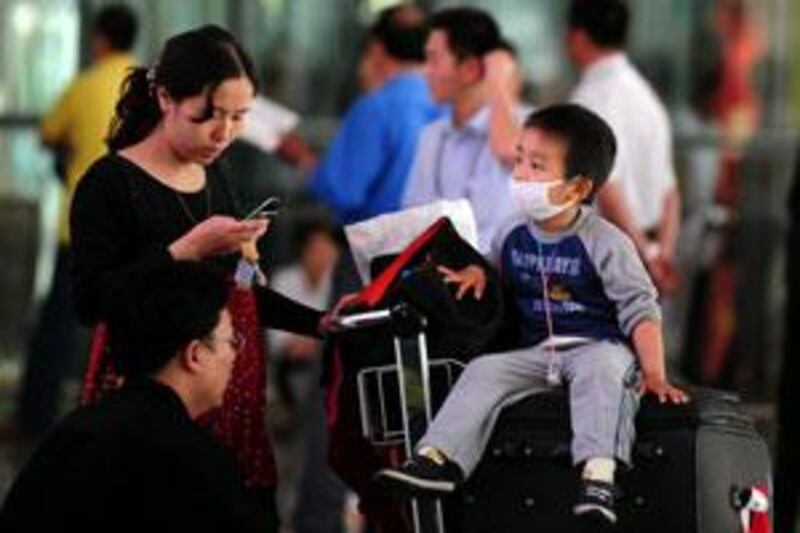The World Health Organization (WHO) said a spike in infections in Australia might push it to finally announce the first flu pandemic in 41 years. Australia's cases jumped to more than 1,000 on Monday and reached 1,211 yesterday afternoon. If swine flu is shown to be spreading rapidly from person to person in another world region beyond North America, such as Australia, that should trigger the conditions for WHO to declare a pandemic, meaning the outbreak has gone global. "We are getting really very close to knowing that we are in a pandemic situation," WHO flu chief, Keiji Fukuda, said in Geneva yesterday. Elsewhere, China's confirmed cases of swine flu today stood at more than 100 after 12 more patients tested positive for the virus. New infections were also reported in Hong Kong, South Korea, New Zealand and Thailand. WHO said the virus has infected more than 26,500 people in 73 countries and caused 140 deaths. Most of the cases have been in North America, but Europe and Australia have seen a sharp increase in recent days.
In China, the New Orleans mayor Ray Nagin remained quarantined in a Shanghai hotel today after a passenger on his flight from New Jersey on Sunday showed flu symptoms. His spokeswoman said Chinese officials have not said when they will end the quarantine for the mayor, his wife and a security guard. China, which has confirmed 101 cases on the mainland, has been quarantining people exposed to the virus and is checking the temperatures of passengers at airports throughout the country. The bustling port city of Tianjin confirmed its first case, a nine-year-old Chinese boy who returned with his mother from Canada on Saturday, according to the ministry of health.
A 19-month-old Chinese girl in the coastal province of Fujian also caught the virus from her father who recently travelled to Canada, it said. There have been at least nine cases of local transmission of swine flu on the mainland, but experts have said it does not represent a serious threat to communities. There were eight new cases in Beijing, one in eastern Shandong province and another in the central province of Hunan, the ministry said.
In the Chinese territory of Hong Kong, which has tallied swine flu cases separately, officials said four more people have been confirmed with swine flu, bringing the number of cases there to 45. Two people travelled to the US or Canada, while the others recently returned from Thailand and Australia. South Korea confirmed five new cases, bringing its total to 53. All were South Koreans who had travelled to the US, Australia or the Philippines, the health ministry said. Thailand's public health ministry reported three new cases - all people who recently returned from the US or Canada - bringing the country's total to 13.
New Zealand confirmed four new cases, bringing its total to 23. Twenty of the cases were contracted outside the country, while the three others were close contacts of infected travellers, said the chief public health adviser Dr Ashley Bloomfield. * AP





